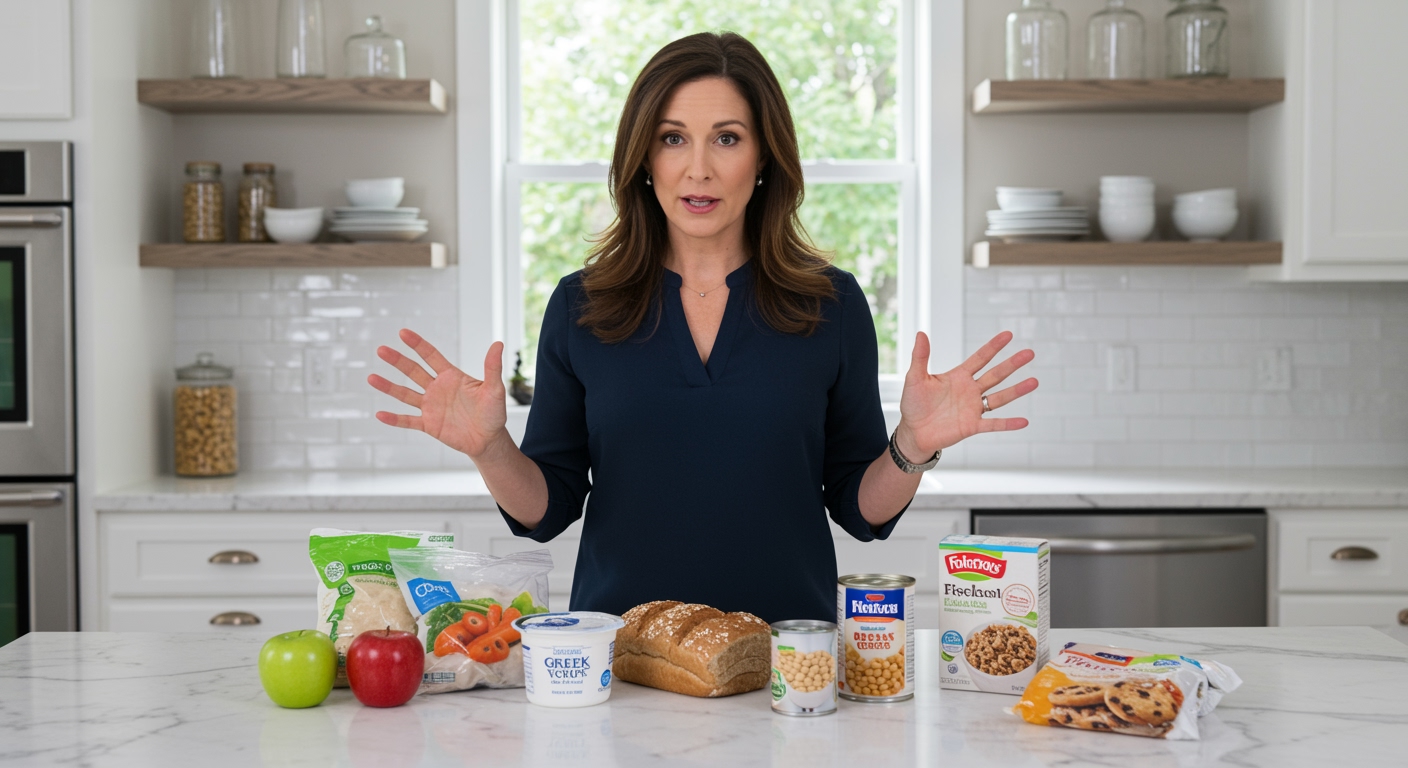✪ Key Takeaway: PCOS women should focus on limiting ultra-processed foods while including minimally processed options for balanced nutrition.
Introduction
You scroll through social media and see another post telling you to avoid all processed foods if you have PCOS.
This advice sounds simple, but it creates confusion because almost everything we eat goes through some level of processing.
Hi, I’m Abdur, your nutrition coach and today I’m going to explain which processed foods actually harm PCOS symptoms and which ones can support your health goals.
What Does Processed Food Actually Mean?
Food processing includes any change made to food from its natural state before you eat it.
Washing, cutting, freezing, and cooking all count as food processing techniques.
Nutrition experts classify processed foods into four main categories based on how much they change from their original form.
Minimally processed foods include frozen vegetables, canned beans, and plain yogurt that retain most of their nutritional value.
Processed culinary ingredients like olive oil, salt, and flour help you prepare meals at home.
Processed foods combine ingredients and include items like bread, cheese, and canned tomatoes with added salt or preservatives.
Ultra-processed foods contain multiple additives, artificial flavors, and ingredients you would not find in a home kitchen.
✪ Fact: Frozen vegetables often contain more nutrients than fresh ones because they are frozen at peak ripeness.
Which Processed Foods Worsen PCOS Symptoms?
Ultra-processed foods cause the most problems for women with PCOS because they spike blood sugar levels rapidly.
These foods typically contain high amounts of added sugars, refined carbohydrates, and artificial additives that worsen insulin resistance.
Research shows that ultra-processed foods make up about 60% of calories in the average American diet, contributing to metabolic dysfunction.
Common examples include sugary cereals, packaged snacks, fast food, frozen pizzas, and sweetened beverages that provide empty calories.
These foods often lack fiber, protein, and healthy fats that help stabilize blood sugar levels throughout the day.
The high sodium content in many ultra-processed foods can also worsen inflammation and water retention in PCOS women.
Studies indicate that reducing ultra-processed food intake by just 10% can improve insulin sensitivity within weeks.
✪ Pro Tip: Read ingredient lists and avoid foods with more than five ingredients or unpronounceable additives.
Can Some Processed Foods Actually Help PCOS?
Many minimally processed foods can actually support PCOS management when chosen wisely.
Frozen vegetables retain their nutrients and make it easier to include more vegetables in your daily meals.
Canned beans provide plant-based protein and fiber that help regulate blood sugar levels effectively.
Plain Greek yogurt offers probiotics and protein that support gut health and hormone balance in women with PCOS.
Whole grain breads and cereals can provide B vitamins and fiber when they contain minimal added sugars.
Nut butters without added oils or sugars deliver healthy fats and protein that promote satiety between meals.
These foods save time and money while still providing essential nutrients that support your PCOS management goals.
✪ Note: Focus on foods with short ingredient lists that you can easily pronounce and recognize.
How Should PCOS Women Approach Food Processing?
The key lies in understanding that food quality matters more than strict avoidance of all processed foods.
Aim to make 80% of your food choices from whole and minimally processed options for optimal PCOS management.
This approach allows flexibility while still supporting your metabolic health and hormone balance goals.
Focus on reading ingredient lists rather than avoiding entire food categories that might include helpful options.
Choose processed foods that add nutritional value to your diet rather than empty calories and artificial additives.
Remember that completely avoiding all processed foods can lead to social isolation and disordered eating patterns.
The goal should be creating a sustainable eating pattern that you can maintain long-term without feeling deprived or restricted.
✪ Pro Tip: Plan your meals around whole foods first, then add convenient processed options to fill gaps.
The Bottom Line
PCOS women should focus on limiting ultra-processed foods while embracing minimally processed options that support their health goals.
Smart food choices come from understanding ingredients, not following blanket rules that ignore nutritional nuance.
I would love to hear about your experiences with different processed foods and how they affect your PCOS symptoms, so please share your thoughts in the comments below.
References
At NutritionCrown, we use quality and credible sources to ensure our content is accurate and trustworthy. Below are the sources referenced in creating this article:
- Healthline: PCOS Diet: What to Eat and Avoid
- Medical News Today: PCOS Diet: Foods to Eat and Avoid
- PubMed: Dietary Patterns and PCOS
- PMC: Nutrition and PCOS Management





